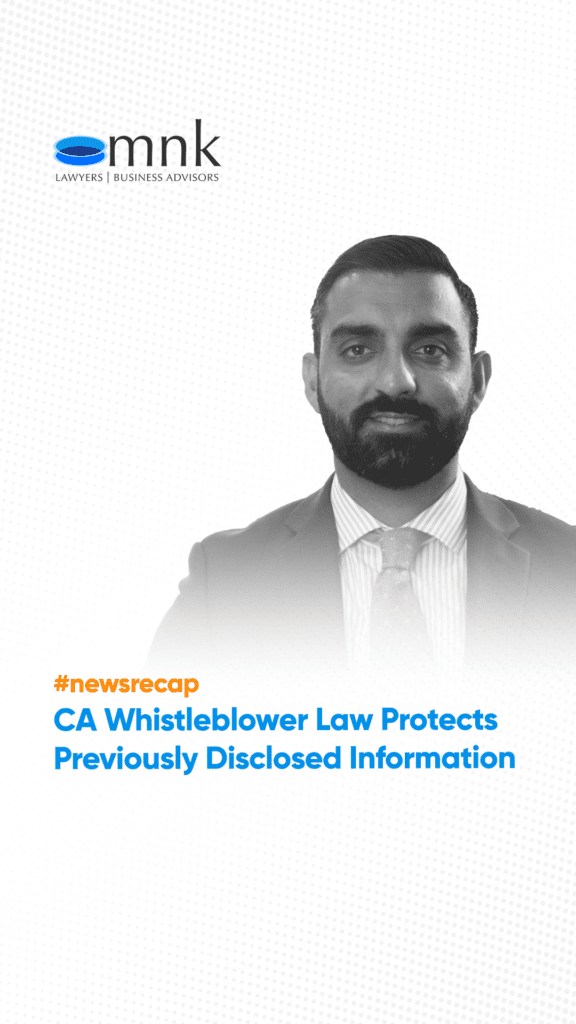In a landmark decision, the California Supreme Court in People ex rel. Lilia Garcia-Brower v. Kolla’s Inc., expanded whistleblower protections for employees by declaring that whistleblowers are protected under Labor Code § 1102.5, even if the employer was previously aware of the misconduct.
Background
Ms. Garcia-Brower worked as a bartender at Kolla’s, Inc. and complained to her employer that she had not been paid for three previous shifts. In response, the owner of Kolla’s Inc., terminated her employment and threatened to report her to immigration authorities.
Thereafter, Ms. Garcia-Bower filed a complaint with the Labor Commissioner, which was found in her favor, stating that Kolla’s Inc. violated the Labor Code by threatening Ms. Garcia-Bower and terminating her employment. As a result, the Labor Commissioner filed a complaint under Labor Code § 1102.5(b), which prohibits employers from retaliating against employees for “disclosing” information about suspected violations of the law to their employers or a government agency.
Both the trial court and Court Appeals ruled in favor of Kolla’s, Inc., stating that a “disclosure” of information required “the revelation of something new, or at least by the discloser to be new, to the person or agency to whom the disclosure is made.” Ms. Garcia-Bower did not disclose any information that Kolla’s, Inc’s. owner did not already know.
The California Supreme Court subsequently granted review and ultimately reversed the Court of Appeals decision.
The California Supreme Court’s Analysis
In a unanimous decision, the California Supreme Court held that “a protected disclosure under section 1102.5(b) encompasses reports or complaints of a violation made to an employer … even if the recipient already knows of the violation.” (Emphasis added.)
The Court reasoned that “although the word ‘disclose’ often refers to sharing previously unknown information, the word also means bringing into view in a particular context a type of information to which the discloser tends to have special access.” The Court further said that Section 1102.5 was designed to protect workers, to encourage disclosure, and to promote compliance with employment-related laws and regulations and that the lower courts’ rulings and rationale were inconsistent with the Labor Code’s intended purpose.
Implications for Employers
In light of this decision, and the growing trend towards a more relaxed burden of proof for employees to establish retaliation claims, employers must take all reports of misconduct seriously, thoroughly investigate and document all claims made by employees, and carefully consider if subjecting an employee to adverse action could subject the employer to a retaliation claim (however baseless it may be).
For more information on Whistleblower Retaliation laws, please contact us at info@mnklawyers.com.
This material is provided for informational purposes only. It is not intended to constitute legal advice, nor does it create a client-lawyer relationship between MNK Law and any recipient. Recipients should consult with counsel before taking any actions based on the information contained within this material.


